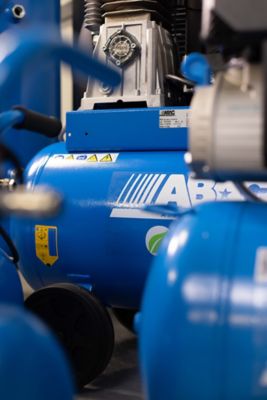Over time, seals and gaskets can deteriorate due to wear and tear, leading to air leaks. Regular maintenance and timely replacement of these components can prevent leaks.
Air Compressor Leak Management: A Step-by-Step Guide
Air compressor leaks can significantly impact efficiency and cost-effectiveness. This comprehensive guide explores the causes, costs, identification, and solutions for air compressor leaks. By the end of this article, you'll have a deep understanding of how to manage and prevent air compressor leaks, ensuring your equipment runs smoothly and efficiently.
What is Air Compressor Leaking?
Air compressor leaking refers to the unintended escape of compressed air from the system. This can occur at various points within the compressor, including hoses, fittings, valves, and seals. When an air compressor leaks air, it not only reduces the efficiency of the system but also increases operational costs due to wasted energy.
Common Causes of Air Compressor Leaks
Understanding the root causes of air compressor leaks is crucial for effective troubleshooting and prevention. Here are some common culprits:
Vibrations and regular use can cause fittings and connections to become loose, resulting in air leaks. Periodic inspection and tightening of these connections can mitigate this issue.
Hoses and tubing are susceptible to damage from abrasion, kinks, and exposure to harsh conditions. Inspecting and replacing damaged hoses can prevent air leaks.
Valves play a critical role in controlling the flow of compressed air. Faulty or malfunctioning valves can lead to leaks. Regular valve maintenance and replacement are essential.
Corrosion and rust can weaken the structural integrity of the compressor components, leading to leaks. Proper storage and maintenance can help prevent corrosion-related leaks.
The Cost of Air Compressor Leaks
Air compressor leaks can have a significant financial impact on your operations. Here are some ways in which leaks can cost you:
Leaking air compressors require more energy to maintain the desired pressure levels, leading to higher energy bills.
Constantly running the compressor to compensate for leaks can cause excessive wear and tear, reducing the lifespan of the equipment.
Air leaks can lead to reduced air pressure, affecting the performance of pneumatic tools and machinery, ultimately decreasing productivity.
Frequent repairs and replacements of damaged components due to leaks can add up, increasing overall maintenance costs.
How to Identify Air Compressor Leaks
Identifying air compressor leaks is the first step towards fixing them. Here are some methods to detect leaks:
Perform a thorough visual inspection of the compressor, looking for signs of wear, damage, or loose connections.
Listen for hissing sounds, which indicate escaping air. This method is particularly effective in quieter environments.
Apply soapy water to suspected leak areas. Bubbles will form at the leak points, making them easy to identify.
Ultrasonic leak detectors are specialised tools that can detect high-frequency sounds produced by air leaks, even in noisy environments.
How to Fix an Air Compressor Leak
Once you've identified the leaks, it's time to fix them. Here are some steps to follow:
Use appropriate tools to tighten any loose fittings and connections. Ensure they are secure but not over-tightened.
Replace any damaged or worn-out seals and gaskets with new ones. Ensure they are properly installed to prevent future leaks.
Inspect hoses and tubing for damage. Repair minor damages with appropriate sealants or replace severely damaged hoses.
Regularly maintain valves and replace any faulty ones. Ensure they are functioning correctly to prevent leaks.
If corrosion or rust is the cause of the leak, clean the affected areas and apply anti-corrosion treatments. Replace severely corroded components.
Preventive Measures to Avoid Air Compressor Leaks
Prevention is always better than cure. Here are some preventive measures to avoid air compressor leaks:
Implement a regular maintenance schedule to inspect and service the compressor components. This includes checking seals, gaskets, hoses, and valves.
Store the compressor in a clean, dry environment to prevent corrosion and damage to components.
Invest in high-quality components and accessories for your air compressor. Quality parts are less likely to fail and cause leaks.
Regularly monitor the air pressure levels and ensure they are within the recommended range. Over-pressurising the system can lead to leaks.
Ensure that personnel operating the air compressor are trained in proper usage and maintenance procedures. This reduces the risk of user-induced leaks.












